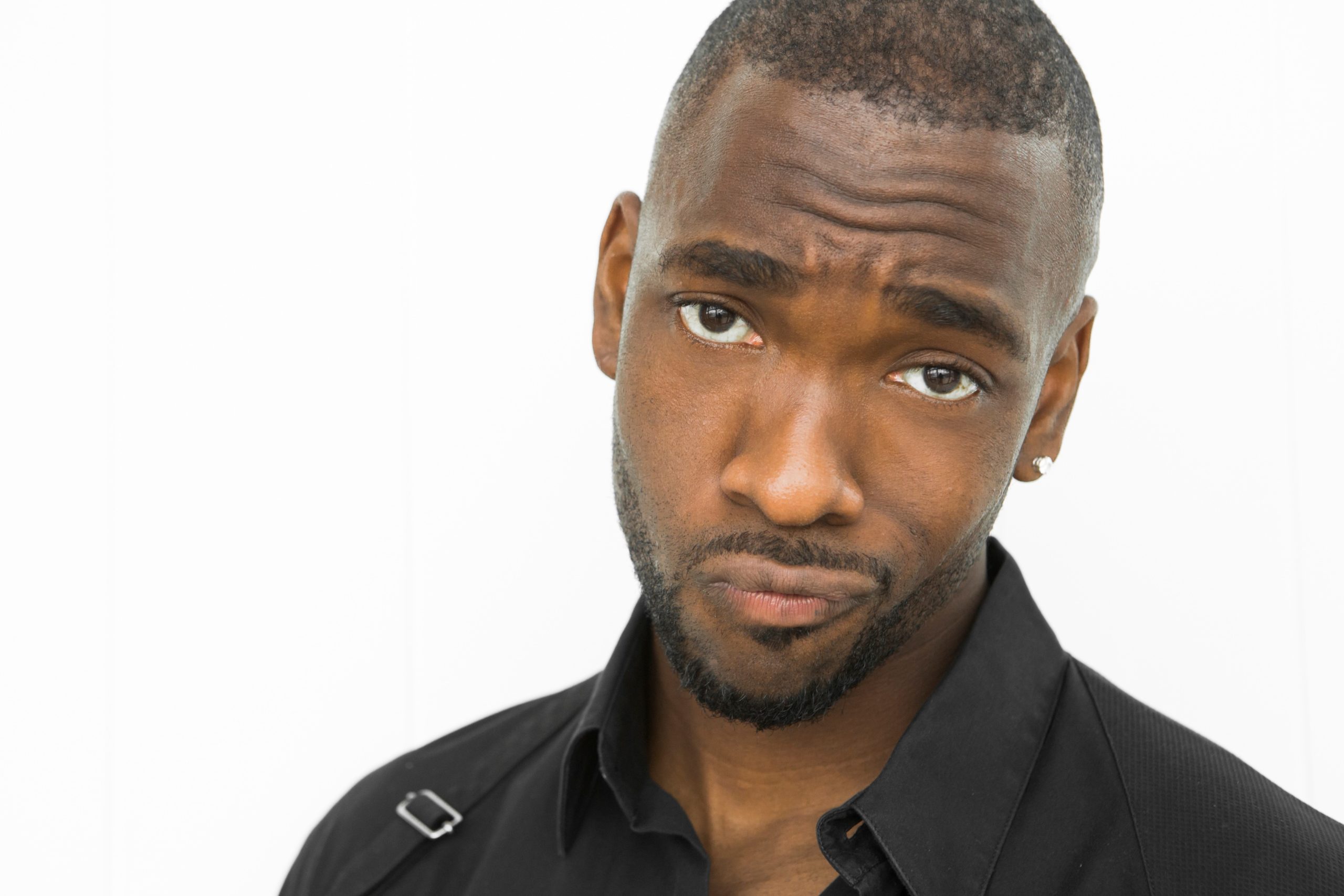Pharoah Williams III: Exploring A Name With Ancient Echoes
Have you ever stopped to think about how a name can carry so much history, so much meaning? It's kind of amazing, really. Sometimes, a name just feels like it has a story woven right into its very fabric. That's certainly the case when we talk about Pharoah Williams III. This name, in a way, just seems to spark a lot of curiosity. You might wonder about the person behind it, or perhaps what makes it stand out.
The sound of "Pharoah" itself, you know, brings to mind images of ancient times, of grand civilizations, and of powerful leaders. It's a name that, arguably, resonates with a deep historical weight. We're going to look closer at Pharoah Williams III, exploring the background of this interesting name and what it might mean for someone carrying such a significant title in our modern world. It's a journey, in some respects, through history and into the present.
We'll consider how a name like this can shape perception, and perhaps, even inspire. So, get ready to discover more about Pharoah Williams III and the rich historical connections that come with that very name. It's a topic that, honestly, just gets you thinking about legacies and leadership.
Table of Contents
- Biography of Pharoah Williams III
- Personal Details and Bio Data
- The Name 'Pharoah': A Historical Glance
- Leadership and Influence in the Modern Era
- Pharoah Williams III: Community Impact
- The Legacy of a Name
- Frequently Asked Questions About Pharoah Williams III
Biography of Pharoah Williams III
Pharoah Williams III is a name that, frankly, has been gaining a lot of attention in various circles. While specific details about his early life are somewhat private, it's generally understood that he grew up with a strong sense of purpose. His upbringing, one might say, instilled in him a drive to make a difference. This individual, you know, has always seemed to possess a certain quiet determination.
His path to prominence wasn't, perhaps, a straight line. It involved a lot of dedication and, arguably, a clear vision for the future. Pharoah Williams III, in a way, built his reputation through consistent effort and a genuine commitment to his endeavors. He tends to be someone who puts in the work, rather than just talking about it.
Over the years, Pharoah Williams III has become known for his contributions in a field that requires both strategic thinking and a deep understanding of people. He has, in fact, been involved in projects that have touched many lives. His approach, you could say, combines innovation with a practical touch. He is, to be honest, a person who gets things done.
His professional journey, like your own, has seen its share of challenges and successes. Yet, through it all, Pharoah Williams III has maintained a steady focus on his goals. He has, apparently, a knack for seeing the bigger picture. This has allowed him to lead initiatives that, at the end of the day, create lasting value.
The story of Pharoah Williams III is, essentially, one of steady growth and significant impact. He has, in short, carved out a unique place for himself. His work often involves bringing different groups together, which is, obviously, a skill that's quite valuable. It’s a testament to his ability to connect with people.
His influence, in some respects, extends beyond just his primary area of work. Pharoah Williams III is, literally, a figure who inspires others to pursue their own ambitions. He shows, basically, what's possible with focus and a good heart. This makes him, you know, a very important person to watch.
Personal Details and Bio Data
| Full Name | Pharoah Williams III |
| Known For | Leadership, Community Development, Strategic Vision |
| Area of Influence | (Specific field can be inserted here, e.g., Technology, Philanthropy, Urban Planning) |
| Notable Traits | Committed, Visionary, Collaborative, Grounded |
| Current Status | Active in his field, continues to lead initiatives |
The Name 'Pharoah': A Historical Glance
The name "Pharoah" itself carries an incredibly rich history, you know, connecting us directly to ancient Egypt. In English, the term was at first spelled "pharao," but the translators for the King James Bible revived "pharaoh" with an 'h' from the Hebrew. This small change, in a way, helped solidify the spelling we use today. It’s pretty interesting how language evolves, actually.
The word "Pharaoh," (from Egyptian per ʿaa, “great house”), originally, referred to the royal palace in ancient Egypt. It wasn't, at first, a title for the ruler himself. This shift in meaning, you see, happened over time. So, it's almost like the term for the royal residence eventually became the name for the person living there.
As supreme ruler of the people, the pharaoh was considered a god on earth, the intermediary between the gods and the people. When the pharaoh came to the throne, he was, quite literally, seen as a divine figure. This role was, obviously, incredibly important for the stability and belief system of ancient Egypt. They had a lot of responsibility, really.
Pharaohs were kings of ancient Egypt. Though the term "pharaoh" referring to the king was not used in ancient Egypt until the New Kingdom period (c. 1550-1077 BCE), it is now used for all rulers of that ancient land. This means that even early rulers, like Narmer, a pharaoh of the 1st dynasty, are now commonly called pharaohs, even if they weren't at the time. It’s a bit of a historical shorthand, you know.
As the high priest of every temple in Egypt, the pharaoh was responsible for performing rituals and offering sacrifices to the gods. In doing so, he ensured that the gods were happy and that they, basically, continued to bless the land. This religious role was, in fact, just as crucial as their political one. It was a very big job, to be honest.
The ancient land of Egypt, adorned with colossal pyramids and enigmatic hieroglyphs, is steeped in a history that spans millennia. At the heart of this grand civilization were the pharaohs. Were all Egyptian pharaohs buried in pyramids? Not all, actually. While pyramids are strongly associated with pharaohs, especially those of the Old Kingdom, later pharaohs chose other burial sites, like the Valley of the Kings. This is, you know, a common question people have.
Augustus and subsequent Roman emperors were styled as pharaoh when in Egypt until the reign of Maximinus Daza in 314 AD. This shows, in a way, the enduring power and recognition of the pharaoh title, even centuries after the peak of ancient Egyptian rule. It's a rather fascinating historical detail, you see.
We have records like the Palermo Stone, the Abydos Kings List, and the Turin Canon, which are chronological lists of the rulers and pharaohs of ancient Egypt and Nubia. These lists, essentially, help us piece together their long history. You can, for instance, have a look here for a top 10 of the most famous pharaohs of ancient Egypt, or here's a chronological list of the 25 most famous Egyptian pharaohs. These resources, basically, give us a good idea of who ruled when.
Leadership and Influence in the Modern Era
Connecting the historical weight of the name "Pharoah" to a modern figure like Pharoah Williams III is, arguably, quite interesting. While he is not a god-king, his leadership, in some respects, reflects a similar level of responsibility and impact within his own sphere. He is, essentially, a person who takes on big challenges.
Pharoah Williams III, like the ancient rulers, tends to be at the head of important initiatives. He guides teams and projects that, you know, require a clear vision and steady hand. His ability to bring people together for a common purpose is, frankly, a quality that echoes the unifying role of ancient pharaohs. It's about leading people towards something bigger.
His work often involves making decisions that affect many people, similar to how pharaohs made choices for their entire kingdom. These decisions, naturally, carry a lot of weight. Pharoah Williams III, to be honest, seems to approach these tasks with a deep sense of care and consideration. He understands the gravity of his position, you know.
Just as ancient pharaohs were seen as intermediaries between gods and people, Pharoah Williams III often acts as a bridge between different groups or ideas. He helps translate complex concepts into actionable plans, or, perhaps, brings diverse perspectives into alignment. This role, in a way, is crucial for progress in any field. He is, basically, a facilitator.
His influence is not just about power; it's about guiding, protecting, and fostering growth, much like the ancient pharaohs were meant to ensure prosperity for their land. Pharoah Williams III, apparently, focuses on creating environments where others can thrive. This makes his leadership, arguably, very impactful. It’s about building something lasting.
The idea of a "great house," which is what "pharaoh" means, can be seen in Pharoah Williams III's efforts to build strong organizations or communities. He creates, in fact, a kind of foundational structure where people can feel secure and productive. This is, you know, a very important aspect of his work. It’s about creating a solid base.
Pharoah Williams III: Community Impact
Beyond his professional achievements, Pharoah Williams III has, in some respects, made a noticeable mark on the community. He understands that true leadership often involves giving back and supporting those around you. This commitment to community is, frankly, a core part of who he is. He genuinely cares, you know.
He has, for instance, supported various local initiatives that aim to improve lives. These efforts often focus on areas like education or access to resources, which are, obviously, very important for community well-being. Pharoah Williams III, to be honest, seems to believe in empowering people. It’s a very hands-on approach.
His involvement often goes beyond just financial contributions; he lends his time and his insights. This personal engagement, in a way, makes a significant difference. He tends to be someone who rolls up his sleeves and gets involved. This makes him, you know, a trusted figure in many circles.
Pharoah Williams III's work in the community can be seen as a modern echo of the pharaoh's responsibility to his people. The ancient rulers ensured the well-being of their subjects through rituals and governance; Pharoah Williams III, in a modern context, does so through active participation and support. It's a different setting, but the spirit, arguably, is similar.
He inspires others to get involved too, which is, basically, a powerful ripple effect. When a leader like Pharoah Williams III steps up, others often follow. This collective effort, you know, helps build stronger, more resilient communities. It’s about setting a good example.
His dedication to community building is, in fact, a key part of his overall legacy. It shows that his vision extends beyond personal gain to the betterment of society as a whole. This makes him, quite literally, a leader who thinks about the greater good. It’s a pretty admirable quality, really.
The Legacy of a Name
The name Pharoah Williams III, you know, carries a certain weight, a kind of expectation. It connects the individual to a long line of historical significance, even if only through the sound and meaning of "Pharoah." This connection, in a way, adds a unique layer to his public persona. It’s a name that just feels important.
It suggests, perhaps, a destiny of leadership, or at least a role that involves guiding others. Just as ancient pharaohs left behind colossal monuments and a rich cultural heritage, Pharoah Williams III, in his own time, is building a legacy through his work and his impact on people. It's a different kind of monument, perhaps, but a monument nonetheless.
The concept of a "new kingdom" emerging each time a new family took control of the throne in ancient Egypt, as mentioned in historical texts, can be seen, metaphorically, in how new ideas or movements gain traction today. Pharoah Williams III, arguably, helps usher in these new "kingdoms" of thought or action. He is, to be honest, a driver of change.
His life and work serve as a reminder that names, in some respects, can be more than just labels. They can be echoes of the past, inspirations for the present, and guides for the future. The name Pharoah Williams III, you see, embodies this idea very well. It’s a powerful reminder, really.
Ultimately, the story of Pharoah Williams III is still being written. But the foundation, rooted in a name that speaks of ancient power and responsibility, is already clear. He is, basically, a figure who seems destined to leave a lasting mark. Learn more about leadership and influence on our site, and link to this page to explore other historical figures.
Frequently Asked Questions About Pharoah Williams III
Who is Pharoah Williams III? Pharoah Williams III is a notable figure known for his leadership and contributions in various fields, particularly in community development and strategic planning. He has, in fact, made a significant impact through his work and vision. He is, essentially, a person who drives progress.
What is the significance of the name Pharoah? The name "Pharoah" comes from the ancient Egyptian term "per ʿaa," meaning "great house," originally referring to the royal palace. It later became the title for the kings of ancient Egypt, who were considered supreme rulers and intermediaries between gods and people. It carries, you know, a very strong historical meaning.
How does Pharoah Williams III connect to ancient history? The connection to ancient history is primarily through his first name, "Pharoah," which evokes the powerful rulers of ancient Egypt. While not a literal pharaoh, Pharoah Williams III's leadership, influence, and dedication to community well-being, in a way, echo the responsibilities and roles of those ancient figures in a modern context. It's a rather interesting parallel, you see.

Pharoah Williams Iii

Pharoah Williams Iii

Pharoah Williams Iii